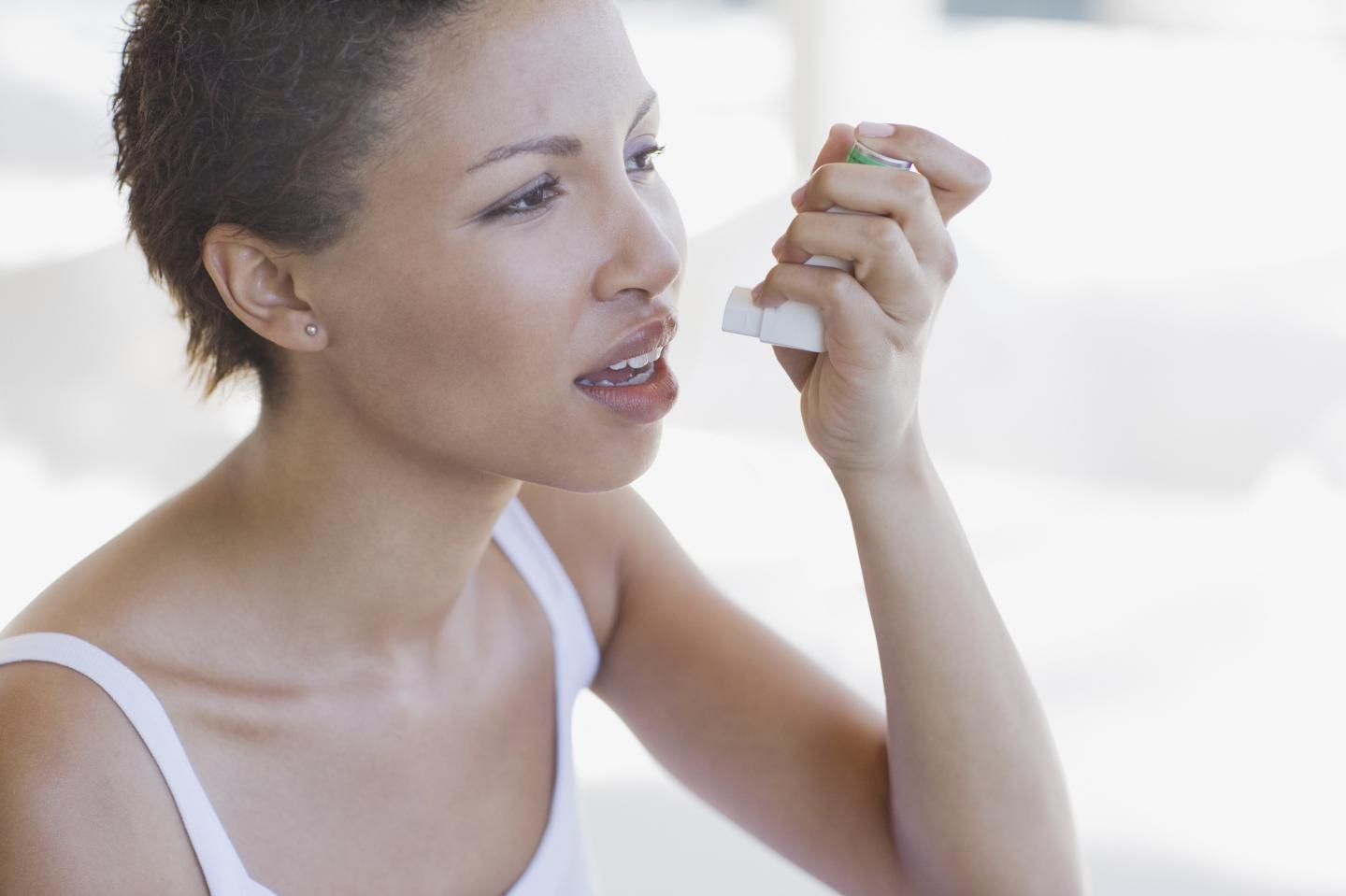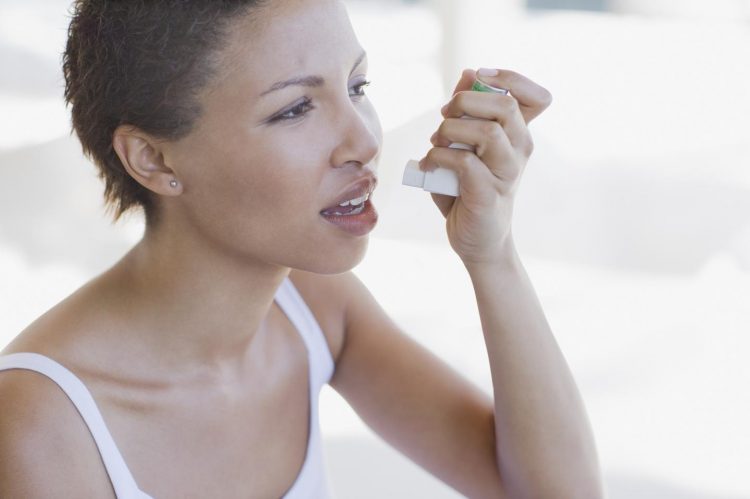
Credit: ATS
Sept. 30, 2019–Women with asthma appear more likely to have lower levels of “free” (not attached to proteins) testosterone than women who do not have asthma, according to new research published online in the American Thoracic Society’s American Journal of Respiratory and Critical Care Medicine.
In “Sex Steroid Hormones and Asthma in a Nationwide Study of U.S. Adults,” Yueh-Ying Han, PhD; Erick Forno, MD, MPH; and Juan C. Celedón, MD, DrPH; also report that among obese women, those with asthma are more likely to have lower levels of estradiol, another sex hormone, than those who do not have asthma. In addition, the researchers found that among non-obese men, those with asthma are more likely to have lower levels of estradiol than those who do not have asthma.
Previous studies have reported specific differences among pediatric and adult asthma patients based on sex. Although asthma is more common in boys than in girls, asthma is more common in women than in men.
Given that sex hormones may explain these sex-specific differences, lead author Dr. Han, an epidemiologist at the UPMC Children’s Hospital of Pittsburgh, and senior author Dr. Celedón, the Niels K. Jerne Professor of Pediatrics and Medicine at the University of Pittsburgh and chief of pulmonary medicine at UPMC Children’s Hospital of Pittsburgh, said they conducted this study to examine whether sex hormones are associated with asthma in adult men and women. They also wanted to test whether any association varies between obese and non-obese individuals.
Their study is believed to be the first population-based study of sex hormonal levels and asthma in both men and women.
The authors analyzed information from 9,238 adults, ages 18-79, who participated in the U.S. National Health and Nutrition Examination Survey (NHANES) from 2013-16. Overall, 9 percent of the participants had asthma. Among women, the asthma rate was double that of men: 12.5 percent vs. 6.1 percent.
The study found that elevated levels of the sex hormones reduced the likelihood of asthma. Specifically:
- In women, levels of free testosterone in the highest quartile compared to the lowest quartile were associated with 44 percent lower odds of asthma.
- Among obese women, levels of free testosterone in the highest quartile compared to the lowest quartile were associated with 41 percent lower odds of asthma.
- Among obese women, levels of estradiol in the highest quartile compared to the lowest quartile were associated with 57 percent lower odds of asthma. Levels of estradiol in the second and third quartiles compared to the lowest quartile were also associated with reduced odds of asthma in these women.
- Among non-obese men, levels of estradiol in the highest quartile compared to the lowest quartile were associated with 56 percent lower odds of asthma.
Because the study was cross-sectional, it cannot determine whether sex hormone levels led to asthma. Study limitations also include lack of information about the current menopausal status of participating women, insulin resistance, or environmental exposure to chemicals that may have affected sex hormone levels.
“Our study results suggest that the circulating sex hormones estradiol and free testosterone contribute to sex differences in asthma among adults,” Dr. Celedón said. “Furthermore, obesity appears to modify the effect of such hormones on asthma in women and men.”
He added that longitudinal studies are needed to confirm and expand on these findings.
###
The contributions of the three researchers who conducted this study were supported by grants from National Institutes of Health.
About the American Journal of Respiratory and Critical Care Medicine
The AJRCCM is a peer-reviewed journal published by the American Thoracic Society. The Journal takes pride in publishing the most innovative science and the highest quality reviews, practice guidelines and statements in pulmonary, critical care and sleep medicine. With an impact factor of 16.494, it is one of the highest ranked journals in pulmonology. Editor: Jadwiga Wedzicha, MD, professor of respiratory medicine at the National Heart and Lung Institute (Royal Brompton Campus), Imperial College London, UK.
About the American Thoracic Society
Founded in 1905, the American Thoracic Society is the world’s leading medical association dedicated to advancing pulmonary, critical care and sleep medicine. The Society’s 15,000 members prevent and fight respiratory disease around the globe through research, education, patient care and advocacy. The ATS publishes three journals, the American Journal of Respiratory and Critical Care Medicine, the American Journal of Respiratory Cell and Molecular Biology and the Annals of the American Thoracic Society.
The ATS will hold its 2020 International Conference, May 15-20, in Philadelphia, Pennsylvania, where world-renowned experts will share the latest scientific research and clinical advances in pulmonary, critical care and sleep medicine.
Media Contact
Dacia Morris
[email protected]





